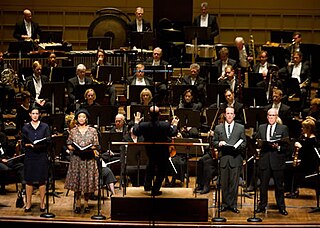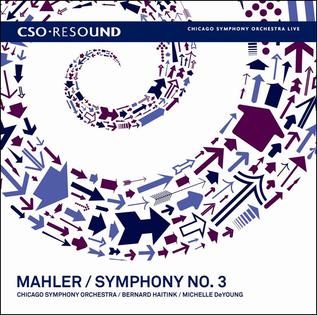
Jake Heggie is an American composer of opera, vocal, orchestral, and chamber music. He is best known for his operas and art songs as well as for his collaborations with internationally renowned performers and writers.

Steven Edward Stucky was a Pulitzer Prize-winning American composer.
Jack Hamilton Beeson was an American composer. He was known particularly for his operas, the best known of which are Lizzie Borden, Hello Out There!, and The Sweet Bye and Bye.
Robert Spano is an American conductor and pianist. He is currently music director of the Fort Worth Symphony Orchestra, music director of the Aspen Music Festival and School, and music director laureate of the Atlanta Symphony Orchestra (ASO).
Daniel Steven Crafts is an American composer. He was born in Detroit, Michigan, but has spent most of his life in the San Francisco Bay Area.

Georgy Vasilyevich Sviridov was a Soviet and Russian neoromantic composer. He is most widely known for his choral music, strongly influenced by the traditional chant of the Russian Orthodox Church, as well as his orchestral works which often celebrate elements of Russian culture.
Necil Kazım Akses was a Turkish classical composer.
Antonín Dvořák's Requiem in B♭ minor, Op. 89, B. 165, is a funeral Mass scored for soloists, choir and orchestra. It was composed in 1890 and performed for the first time on 9 October 1891, in Birmingham, England, with the composer conducting.

Robert Xavier Rodríguez is an American classical composer, best known for his eight operas and his works for children.
Will Todd is an English musician and composer. He is a pianist, who performs regularly with others in his own works.
Daniel Felsenfeld is a composer of contemporary classical music and a writer.

In April 2007, the Chicago Symphony Orchestra Association launched CSO Resound, its in-house record label. All recordings have been made live in concert in Orchestra Hall at Symphony Center, and a complete list of releases, chronological by recording date, is below.
Gene Scheer is an American songwriter, librettist and lyricist. Brother to Samuel Scheer, an English teacher at Windsor High School and part-time musician.
Creation/Creator is an oratorio for soprano, mezzo-soprano, tenor, baritone, bass, chorus, and orchestra by the American composer Christopher Theofanidis. The work was commissioned by the Atlanta Symphony Orchestra and was first performed on April 23, 2015 by the soprano Jessica Rivera, mezzo-soprano Kelley O'Connor, tenor Thomas Cooley, baritone Nmon Ford, bass Evan Boyer, the actors Steven Cole and Shannon Eubanks, and the Atlanta Symphony Chorus and Orchestra under the conductor Robert Spano.





